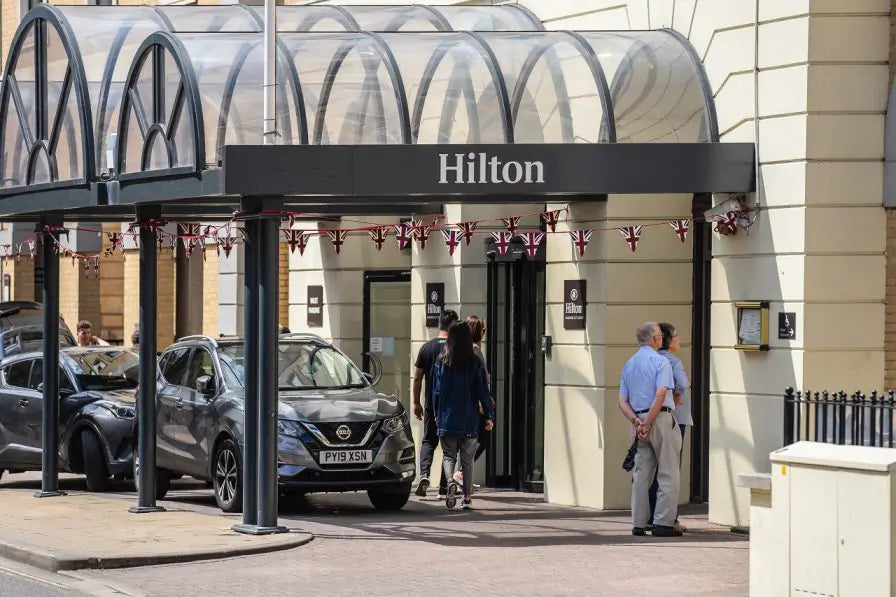Your basket is currently empty.
Shop NowIn The News: Our Look at the Top Recycling Stories Making the Headlines

In The News: Our Look at the Top Recycling Stories Making the Headlines
How many times have you used half of the free bar of soap you get in hotel rooms? (when it hasn’t ‘accidentally’ ended up in your washbag, of course).
But what happens to the half bar that’s left lying on the sink?
Well some hotels simply throw them away, but Hilton Hotels has different ideas. The global hotel giant has just joined forces with Clean the World, an organisation that collects used soaps from hotels, melts them down, removes any impurities, then makes brand new bars of soap for people who need them. Some of the soaps will be put into hygiene kits which will be distributed to homeless shelters across the globe.
Hilton Hotels may be a corporate giant, but it’s also keen to demonstrate that it’s conscious of the impact that its operations have on the environment.
The company launched an initiative to reduce carbon emissions last year, and part of this is reducing plastic usage and water consumption. It has already removed plastic straws from its hotels.
Travellers consider the impact of their holiday on the environment
Maybe Hilton Hotels is on to something with prioritising the environment. Figures from TripAdvisor show that 62% of travellers consider the impact on the environment when they book a holiday. Finding an eco-friendly hotel is a big part of that.
But finding a greener hotel can be confusing as many hotels don’t expressly advertise that they are eco-friendly. So how would you know whether your hotel is eco-friendly? Here’s what to look for.
A central location
The more attractions and other places of interest that are within walking or cycling distance from your hotel, the better. The less you use a car, the better it is for the environment, and for your pocket. If you’re going further afield, try to make use of your destination’s public transport system.
A place that advertises its green credentials
When you’ve found a few accommodation options, check out their website or call ahead to find out more about any eco-friendly practices they have in place, or about any green credentials they have. For example, do they only use locally sourced products? Do they have energy-saving measures in place? Do they use renewable energy? Have they won any sustainability awards?
A locally and sustainably sourced menu
A menu full of locally-sourced, sustainably produced foods and ingredients is a good sign of an eco-friendly hotel. Produce won’t need to have been transported far, so it reduces emissions and fresher ingredients will be healthier and tastier for you.
Is your hotel socially responsible?
Does your chosen hotel give anything back to the community in which it operates? Does it donate to, or take part in, environmental charity or conservation efforts? Are the staff employed from local areas? These are all good signs of a hotel that cares about the community that sustains it and the wider world it operates in.

Knowledge is power
If you can’t find an eco-friendly hotel you love, there are some sites that make finding sustainable holiday accommodation so much easier. Check out:
Britain’s Finest-For eco-friendly hotels in the UK
The Luxury Travel Expert- for luxurious eco-friendly hotels across the globe
bookdifferent- for eco-friendly accommodation across the globe to suit any budget.
And of course, where would we be without TripAdvisor to guide our holiday choices!
Eco-friendly or not?
You might have seen some features in hotels you’ve stayed at and you might have wondered whether it made them eco-friendly. Here’s the lowdown.
Solar panels: They are an eco-friendly feature if there are enough of them to generate enough energy to make a difference.
Roof gardens: They do provide insulation and absorb rainwater, but they have to be big enough to make a difference.
Saltwater pools: While they don’t need as much chlorine, they still require other chemicals to keep them clean.
Sustainable construction and renovation: This really cuts down on waste and preserves valuable materials.
Fixing leaks: Even a small leak can really ramp up a building’s water usage.
Leaving some of the land or grounds au naturel: Keeping lawns tidy, installing golf courses and other features needs a lot of water, weed killer, and other chemicals that are not great for the environment. Yes, they look the part, but so does some beautiful untouched land with natural grasses, wild flowers, and wild life.






